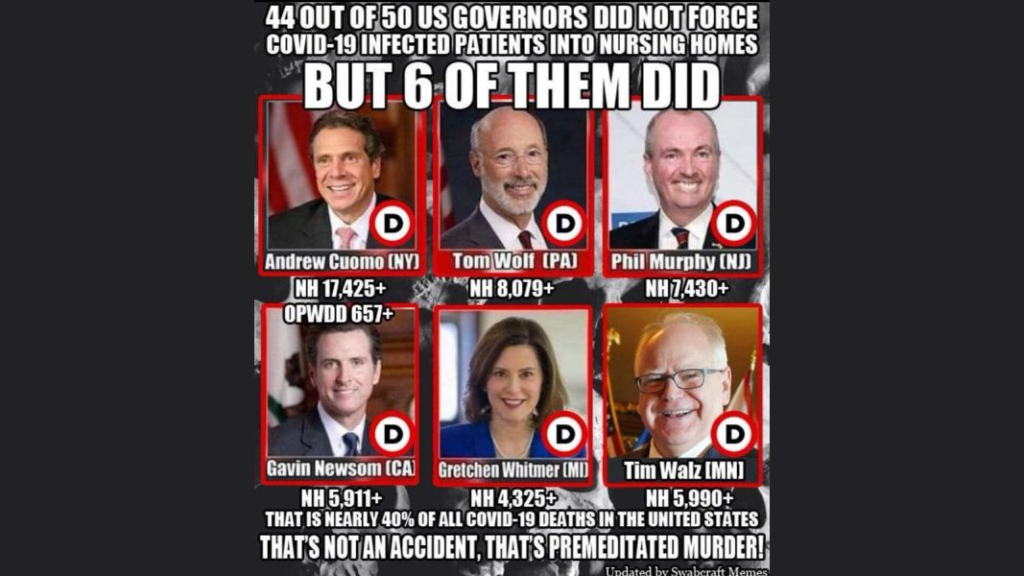The response of various state governors to the COVID-19 pandemic, particularly in relation to their handling of nursing homes, has come under intense scrutiny. Notably, former New York Governor Andrew Cuomo faces serious allegations related to his decision-making during this health crisis, with recommendations for criminal prosecution forthcoming. Cuomo’s administration implemented a controversial policy that mandated the return of COVID-19 patients to nursing homes. This decision has been linked to the tragic deaths of thousands of elderly individuals, raising alarm over the responsibility that such leaders hold in safeguarding vulnerable populations during a public health emergency.
Equally concerning are the actions of Minnesota Governor Tim Walz, who, like Cuomo, adopted similar policies during the pandemic. Walz’s approach has been heavily criticized, especially as nursing homes accounted for a staggering 81% of COVID-related deaths in his state. Despite the overwhelming evidence pointing to the dangers of placing infected patients in these facilities, Walz staunchly defended his choices. Critics argue that such policies reveal a gross negligence on the part of leaders who should prioritize the health and safety of their constituents, particularly the elderly, who are known to be at higher risk for severe complications from the virus.
Moreover, Walz’s actions extended beyond nursing home policies. During the pandemic, he implemented various other controversial measures, including the use of paintball guns to target citizens who violated safety protocols. This militaristic approach to governance raised eyebrows, with many characterizing it as authoritarian. The broader context in which these decisions were made reveals a pattern of partisan blame-shifting by Walz. He frequently pointed fingers at neighboring states such as South Dakota and Florida, as well as Republican governors in Wisconsin, instead of accepting responsibility for the deteriorating situation in his own state.
The atmosphere of fear and division was further exacerbated by Walz’s establishment of a “COVID snitch hotline,” which encouraged citizens to report neighbors who defied lockdown orders. This initiative has been criticized for fostering an environment of mistrust among community members and painting a grim picture of governance in times of crisis. Such actions have led to accusations of a repressive state, undermining civil liberties and personal freedoms that are hallmarks of American democracy.
In light of these policies, both Cuomo and Walz stand as representatives of a troubling trend among certain Democratic governors during the COVID-19 pandemic. Their decision to place COVID-positive individuals into nursing homes—despite clear evidence of the risk posed to the elderly—raises profound ethical questions about their leadership and accountability. The devastation that followed these decisions has left a lasting impression on those who believe in the sanctity of life and the moral obligation of leaders to protect their citizens, especially the most vulnerable.
As the nation continues to grapple with the ramifications of the pandemic and the leadership decisions made during that time, it is vital that calls for accountability resonate loudly. The actions of Walz and Cuomo should serve as a stark reminder that the measures taken during health crises have real-life consequences. There is a growing consensus that those in power must be held responsible for their choices, particularly when such choices result in unnecessary suffering and loss of life. Ultimately, this reflection on the pandemic also challenges all leaders to prioritize evidence-based policies, especially when the lives of the elderly and vulnerable hinge on such critical decisions.

